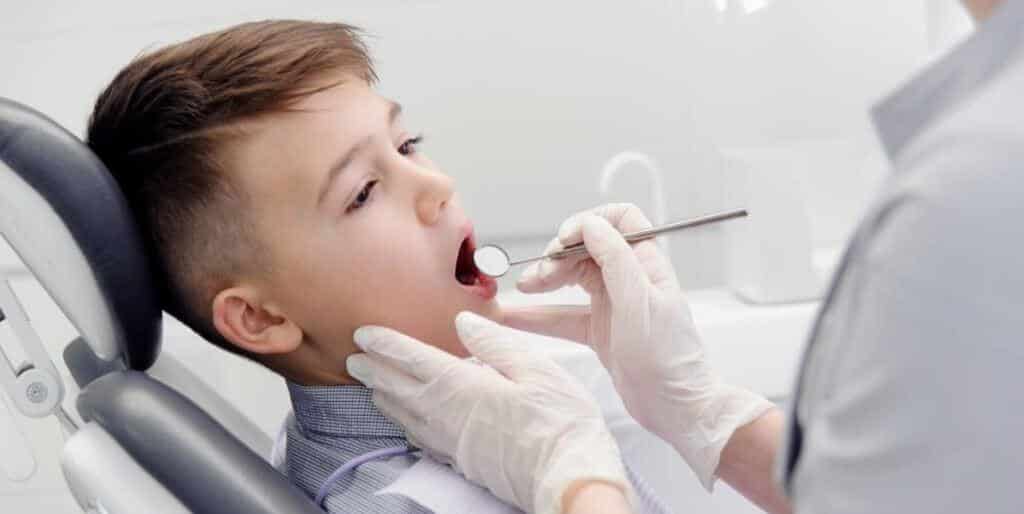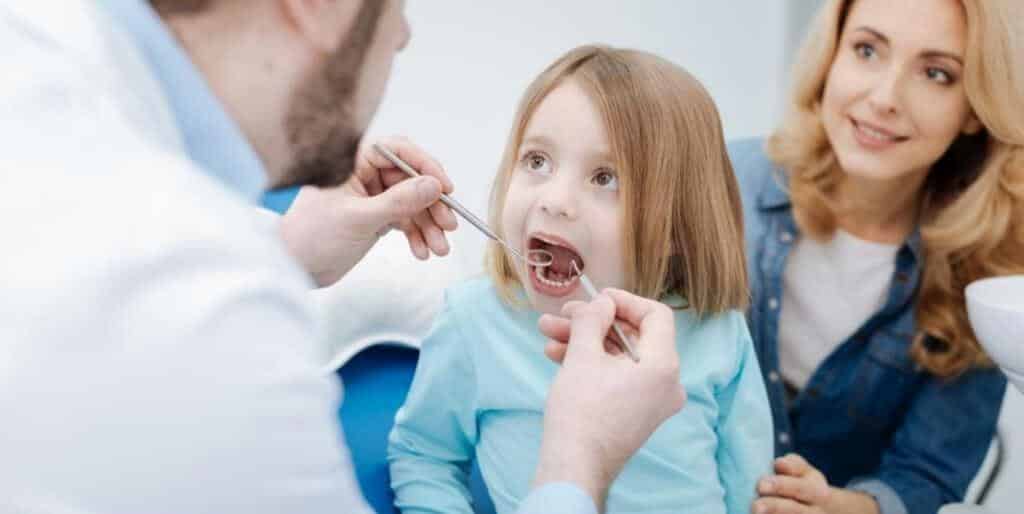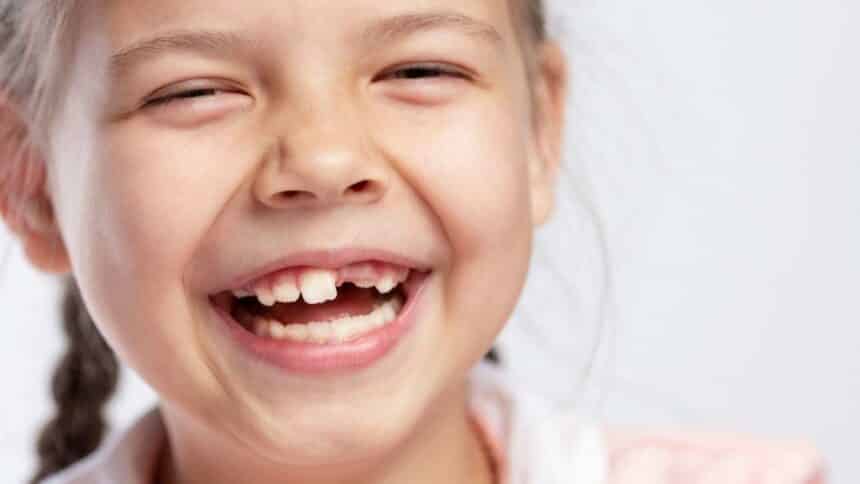Baby teeth usually fall out on their own. This is caused by permanent teeth, which weaken their roots and lead to a natural loosening. However, there are times when the removal of a milk tooth is a necessity. Find out in which cases your child's deciduous tooth should be removed and when it is not necessary.
When do milk teeth fall out?
Usually, a toddler does not have a full set of milk teeth until the age of three. However, milk teeth serve the child for a rather short period of time, on average 3-4 years. After this time comes the moment when millipedes begin to fall out and are replaced by permanent teeth. These begin to emerge around the age of six.
This happens in stages and lasts for several years. Usually in the order in which they erupted, so first the ones, then the twos. The canines fall out when the child is about 12 years old.
However, the moment when a young person has all permanent teeth comes much later. This is because the last ones, the eights, erupt at the age of 18-20.
Regardless of when the permanent teeth appear You should start caring for your little one's teeth as early as possible. What does this mean? As soon as the first milk tooth appears. This is when you should make an appointment so that your child can get used to the dentist's surgery and not be afraid of it. You can find out what such a visit is like in our article "Your child's first visit to the dentist in the UK".
And if the atmosphere in your home already gets thick at the word dentist, get to know the ways to deal with a child's fear of the dentist.

When is the extraction of a deciduous tooth a necessity?
Typically, dentists adopt the practice of not removing teeth on the principle that 'every tooth is worth its weight in gold'. The same is true of milk teeth. Although they are followed by others, the removal of each milk tooth is only considered in a few cases anyway:
- when a tooth is dead, diseased or affected by gangrene and therefore rotting from the inside, posing a risk to the child's health,
- when a tooth refuses to erupt spontaneously and interferes with the eruption of already formed permanent teeth,
- When there are reasonable orthodontic indications to extract a tooth for aesthetic reasons.
If you are wondering whether your child should visit an orthodontist, be sure to read the article "Orthodontic treatment - frequently asked questions".
However, the removal of a milk tooth is always a last resort. The loss of milk teeth too soon does not have a positive effect on bite development. The absence of one or more deciduous teeth in the arch causes displacement of adjacent teeth and their loosening.
In addition, the hole left by an erupted millipede becomes increasingly obscured by other teeth, which can make it difficult for permanent teeth to emerge in this area.
And do not forget that your toddler's teeth play a significant role in the functioning of the speech organ. Their absence can cause speech defects.
The best option, therefore, is to treat the deciduous teeth so that they remain in the child's mouth for as long as possible and, at the same time, do not adversely affect the child's health.

How to avoid it by removing the millipede?
The most effective, cheapest and painless method of avoiding the unpleasant consequences of having a milk tooth extracted is prevention.
We are referring here not only to ordinary tooth brushingbut a regular daily ritual of caring for the baby's teeth. It is important to be systematic and thorough. If you leave the child with the slogan "Brush your teeth!" he or she will usually do it quickly and inaccurately. Therefore, up to the age of eight, it is you who should monitor and possibly correct the way your child brushes his teeth.
When your toddler doesn't like brushing his teeth, work on it together. 10 ways to encourage your child to brush their teeth.
The second important element in the care of healthy teeth is a well-composed, healthy and tailored diet. The main thing is to avoid foods that are harmful to the teeth, such as sugar, fizzy drinks and sweets. Instead, you can feed your child vegetables, fruit and products rich in calcium and protein to strengthen the mineralisation of the teeth.
Check what it should contain anti caries diet.
In addition to home care for your child's healthy teeth there are also painless preventive treatments carried out at the dentist's surgery, such as varnishing or fluoridation. You can find out more about these in our material.
If you have any questions or would like to make an appointment for a first visit with your child, write to us.

